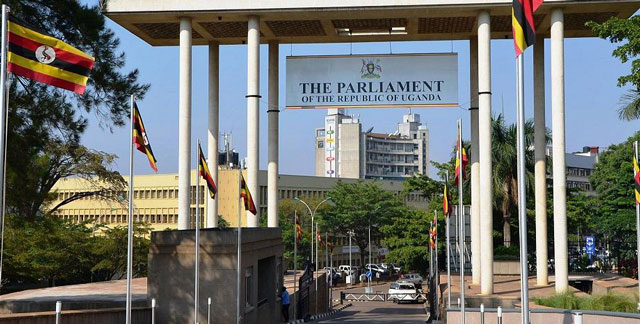
When compared with the first sessions of previous parliaments the current parliament is the worst performer. The 6th parliament passed 10 Bills in its first session. Up to 8 Bills were new, and one was an amendment Bill. In 2001 in the 7th parliament, of the 26 Bills handled, 25 were new Bills. In 2006 in the 8th parliament, all the 18 bills handled were passed and 9 were new.
Then the 9th Parliament came and in the early days lit up the media with stories. In the first session alone, the 9th parliament passed up to 11 Bills and adopted 23 Bills that were not concluded by the 8th parliament
This parliament passed some of the most controversial bills like Petroleum Exploration, Development and Production Act 2013 and The Petroleum Refining, Gas processing and Conversion, Transportation and Storage Act 2013, Anti -Money Laundering Act 2013, Registration of Persons Act 2015 and Public Order Management Act 2013.
In addition to the bills, the legislators put the executive, including President Yoweri Museveni, on spot when discussing the controversial death of Cerinah Nebanda, a young outspoken Woman MP for Butaleja District who was alleged to have died of poisoning. When allegations that some cabinet ministers had taken bribes from oil companies emerged, they became another point of heated debate.
Then-prime minister John Patrick Amama Mbabazi was put on spot. There was also the late Aronda Nyakairima appointment saga where MPs attempted to block the serving soldier from taking public office without quitting the army and the dubious compensation of $65 million to Hassan Basajjabalaba who was the head of the NRM Entrepreneurs’ League and very close to President Museveni.
Amidst all this parliament show of force, the MPs censured minister for Presidency Kabakumba Matsiko for misappropriation of equipment belonging to the national broadcaster, the Uganda Broadcasting Service (UBC) and then-Finance Minister , Syda Bbumba and Kiddu Makubuya, then- Minister for General Duties in the office of the prime minister were asked to resign in 2012 after a parliamentary investigation found that they engaged in an over Shs169 billion corruption scandal involving Basajjabalaba who had won tenders to develop different areas in Kampala.
According to the Parliament Watch Bulletin report, a citizen –assessment of the first year of the 9th parliament by UGMP, parliament was rated high in terms of legislation and oversight. It scored 60% while the current parliament scores 40%.
Former legislator David Pulkol, who previously headed a parliament performance rating body; the Parliament Scorecard, also says he not surprised that the current crop of MPs are seen as a basket case. He says the kind of laws that are being passed these days “speak volumes of the quality of people being sent to the august house”. He says most are first timers and not very exposed since some come direct from school to parliament. To him such a group cannot exert pressure on the government because they lack experience of how systems work.
In its first session, the 9th parliament initially exerted pressure on civil servants and executives. This found them always clashing with government and also gave them clout among the voters. But stories told of the 10th parliament are mostly about chasing selfish deals, according to Makara. He says parliament is now looked at as “a job for financial gains yet before it was meant to be for that person who stands for a cause”.
 The Independent Uganda: You get the Truth we Pay the Price
The Independent Uganda: You get the Truth we Pay the Price



